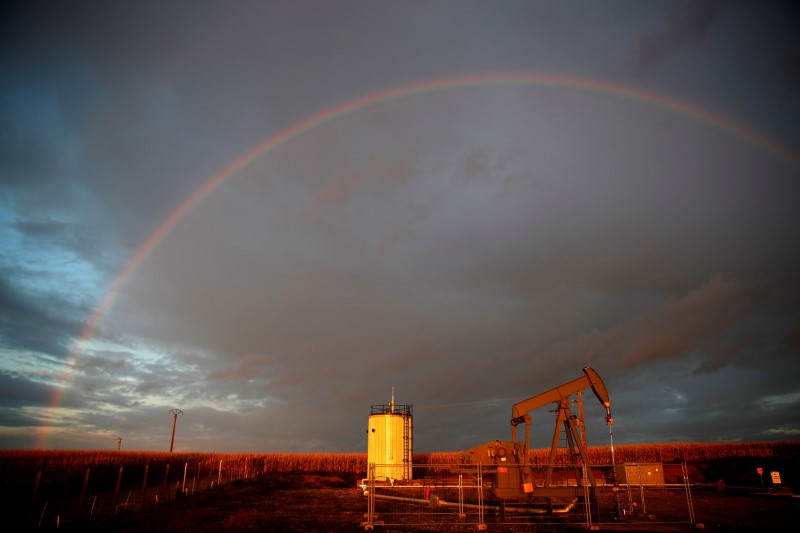By Amanda Cooper
LONDON (Reuters) - Oil fell on Monday after a rising rig count in the United States suggested the shale boom is showing no signs of slowing, but prices remain near their highest in more than three years and are set for a second straight month of gains.
The prospect of the United States reimposing sanctions on Iran and OPEC's continued discipline in withholding output have kept the market well above $70 a barrel for most of this month.
Brent crude futures (LCOc1) were down 88 cents at $74.76 a barrel by 1108 GMT. The price rose to $75.47 last week, the highest since November 2014.
U.S. West Texas Intermediate (WTI) futures (CLc1) fell 78 cents from their last close to $67.32 a barrel.
"Generally, (the rig count) took the edge off an otherwise bullish market," said SEB chief analyst for commodities Bjarne Schieldrop.
"On top of that (producers) are already drilling more than they can complete and adding on more rigs. So shale is booming and it’s still heating up. That is hard to digest for a bull."
U.S. drillers added five oil rigs in the week to April 27, bringing the total count to 825, the highest level since March 2015, General Electric's Baker Hughes energy services firm said.
Crude production in the United States
Meanwhile, Brent prices have gained nearly 6 percent this month, buoyed by expectations the United States will renew sanctions against Iran.
U.S. President Donald Trump has until May 12 to decide whether to restore the sanctions on Iran that were lifted after an agreement over its disputed nuclear programme.
"Things are not quite the same as in the previous decade, when Iran was regarded as a menace and a threat. Over the last three-four years Iran has behaved itself - according to everybody," said Sukrit Vijayakar, director of energy consultancy Trifecta.
"It's only Trump who wants to back out of the deal, but he wants to back out of so many deals ... If you keep saying about backing out, you lose credibility as a state. Everyone is feeling the pinch of OPEC cuts anyway," Vijayakar added.
Re-imposed sanctions on Iran, OPEC's third-largest producer, would probably result in a reduction of Iranian oil exports, tightening global supplies even more.

Oil prices are also drawing support from declining output in Venezuela, OPEC's biggest producer in Latin America, and Angola, Africa's second-largest exporter.